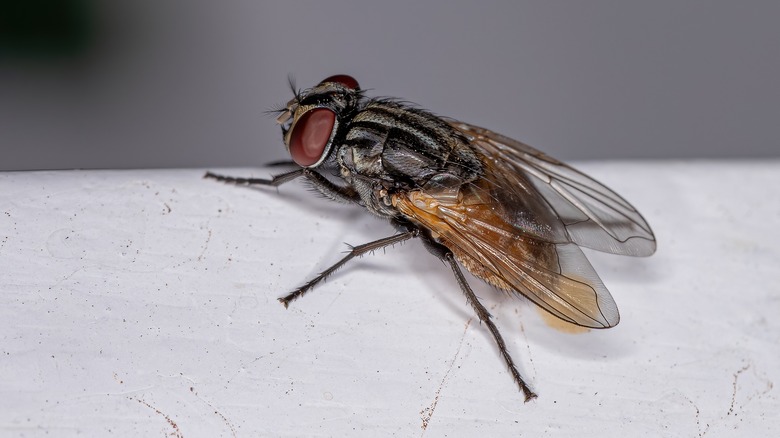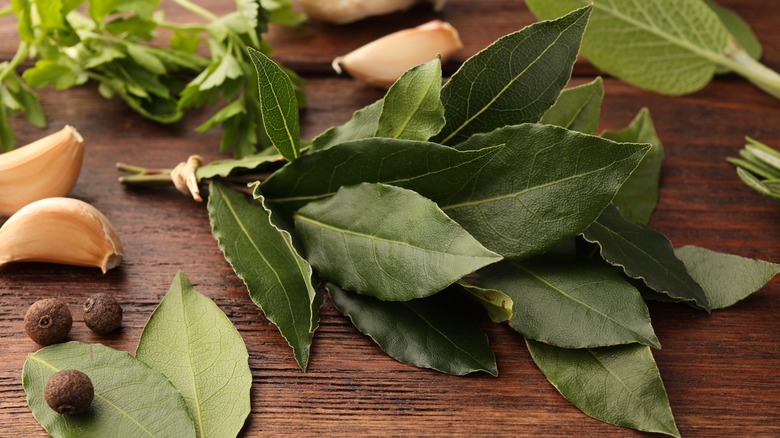Deter Flies With A Spice You Likely Already Have In Your Pantry
Common household flies can be more than just a nuisance in the kitchen and other parts of your home — they also spread diseases, including typhoid fever, cholera, dysentery, tuberculosis, and many more. If you want to stay safe and keep your home fly-free, there are better options than just swatting them as they appear. One of the best ways to keep flies out of your house is to use a simple spice that you probably already have in your pantry: bay leaves.
Placing some bay leaves in strategic locations around the kitchen and home can repel flies and discourage them from coming around. Bay leaves have a bitter smell that many insects and pests, including common flies, simply can't stand. Bay leaves contain a chemical compound referred to as eugenol, which gives it a strong aroma and a distinctive flavor. Insects pick up on this scent with their receptors and are repelled by it. In addition to repelling flies, the scent of bay leaves is also thought to repel ants, cockroaches, moths, earwigs, and beetles. You may even want to use bay leaves to deter mice from your home.
How to use bay leaves to repel flies
There's very little that's required to make use of this fly-repellent attack. You'll simply need to grab some bay leaves from the pantry and place some of them where you've already noticed flies or anywhere you want them to stay away from. You can use either fresh bay leaves or dried bay leaves.
It's a great idea to place bay leaves close to food to mask the smell of what flies may take an interest in. You might also consider placing them near trash cans or by doors and windows where you suspect flies may be entering your house. To keep things tidy, consider adding the bay leaves to a small open container or mesh sachet. Additionally, keep in mind that you'll likely need to replace the bay leaves after a few months to refresh their repellent scent. They'll become less potent and effective as time goes on.
Although you may be eager to keep insects out of your house, remember to be careful with bay leaves. If ingested, bay leaves are toxic to dogs and cats, so ensure they're unable to eat them. Whole, dried bay leaves can also be a choking hazard, so ensure that you keep them out of reach of children as well.

